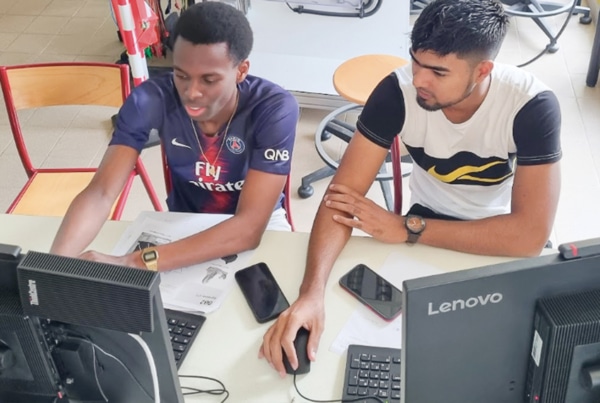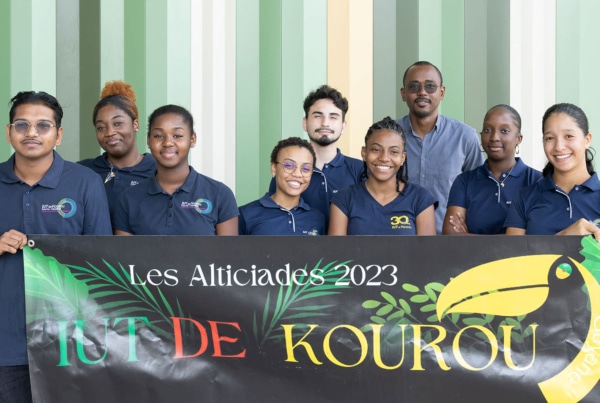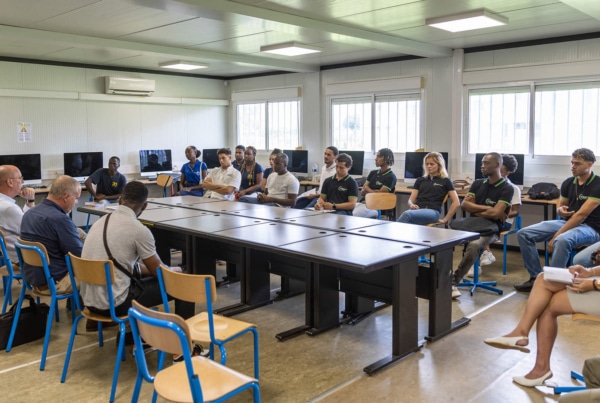
The Kourou IUT is organising a conference on Monday 9 March 2020 from 6pm in amphitheatre E on the Troubiran campus, entitled "Energy transition in an African context". The lecture will be given by Dr Mamadou Lamine NDIAYE, lecturer and researcher in electronics at the École Supérieure Polytechnique de l'Univ
Rural Africa in general, and Senegal in particular, is characterised by monetary and energy poverty, particularly affecting women. The Senegalese rural environment is also characterised by a high dependence on wood energy and a low consumption of electrical energy.
The presentation will look at the energy context in Africa in general and Senegal in particular, and will also focus on the paradox between the energy deficit and the availability of energy resources, especially from renewable sources. Renewable energy development strategies will be addressed through the regulatory framework, energy guidelines, the challenges of integrating renewable energy sources and a presentation of current projects. We will conclude our presentation with a few points. The presentation will close with a look at the international challenges.
A few words about the speaker
Mamadou Lamine NDIAYE is Professor of Electronics and Telecommunications in the Department of Electrical Engineering at the ESP. He currently heads the ESP's Research and Cooperation Department. His research focuses on the modelling of complex systems, signal processing and renewable energies. He has written around twenty publications over the last five years. Prof NDIAYE has been leading a research group on energy management systems at the ESP's CIFRES since 2010. His team's research focuses on optimising intelligent energy control strategies. Dr NDIAYE was a member of the team that won the "Energy and first prize" in Orange's D4D (Data For Development) programme. His work "Use of mobile phone data for rural electrification planning in developing countries" aims to assess the contribution of mobile phone data to the development of models of energy demand evolution in order to improve energy planning studies and existing electrification practices. He was an energy expert for the "women entrepreneurship and adaptation" project funded by CIDA to the tune of 3 million dollars. This project helped to strengthen the climate resilience of communities and in particular women's groups in the villages of Dionewar, Niodior and Falia in the Saloum delta in Senegal. He was one of the leaders of the EolSenegal project: production and maintenance of small local wind turbines for rural electrification. This project led to the creation of a local industry for the manufacture and maintenance of wind turbines for rural electrification. He is one of the leaders of the "Monitoring the performance of solar street lamps in the Sahel" project (currently underway), funded by the Ministry of Higher Education and Scientific Research. He is one of the leaders of the project "Setting up a test centre in Dakar to carry out quality checks on photovoltaic modules" (October 2017 - December 2019). This project has been funded by the Swiss Federal Office of Energy. Professor NDIAYE is also leading the project "Optimising the performance of a solar press for the productive extraction of groundnut oil in Senegal", funded by the German Development Cooperation (GIZ) for the period January - September 2018. This project aims to develop the processing of groundnuts using solar energy. He has co-supervised three doctoral theses already defended and is currently supervising five doctoral students in the field of electrical systems.




